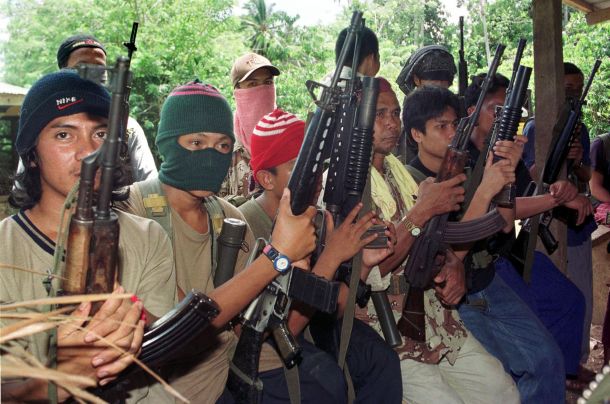
Antonio Moscatello is an Italian journalist who graduated in Japanese language and translated many texts from Japanese. He became a professional journalist in 2001 and worked as foreign correspondent in Tokyo, Iraq, and Budapest. In 2012 he investigated North-Korean kidnappings, which is also the theme of “Megumi”, his latest book. Strife’s Editor Andrea Fischetti met with Mr Moscatello to discuss the issues raised in “Megumi”.
All Enquiries as to this article’s content should be sent to Strife Blog.
AF: Let’s start with “Megumi”, who inspired the title of your book. Who is Megumi? What does her case tell us about North-Korean kidnappings?
AM: Megumi Yokota was kidnapped when she was 13 years old, in November 1977, on her way home after school. Everything happened within around 500 meters. For about 20 years her disappearance remained a mystery, until, almost by chance, the truth came up: she was kidnapped and taken to North Korea by agents working for Pyongyang.
Her story became the most emblematic case among the many North Korean kidnappings in Japan, South Korea, and further afield. Moreover, the story of Megumi has yet to come to an end, after more than 40 years.
I believe a remarking characteristic of Megumi’s case is the reason behind her disappearance. This wasn’t a planned operation, like many others conducted by Pyongyang in those years. In fact, Megumi was kidnapped due to her physical appearance, since she looked older than her actual age. This is also an emblematic case of Kim Jong Il’s strategy. At that time, for the North Korean regime there was no difference between normal people and those who held official roles in government and parties: everyone was believed to be an “agent” of a government, be it ally or enemy. For example, when 30 years later five Japanese citizens were returned to Japan after being kidnapped, they were presented as part of an official delegation.
The lack of a difference between normal citizens and government officials in the eyes of North Korea explains a lot about the North-Korean view of power; it also highlights the cohesiveness of the regime and, possibly, of the whole North-Korean society.
AF: Megumi is not the only case you analyse in your book. Is there another one you want to tell us about?
AM: There are many stories, and each one could make for a great espionage movie. However, there is one specific case that I wish to mention; one that took place in the United Kingdom, and more precisely in London. In 1983, a young exchange student from Japan, Keiko Arimoto, disappeared. Similarly to Megumi’s case, Keiko’s whereabouts remained unknown for many years, until another Japanese citizen, who was also detained in North Korea following his kidnapping, managed to send a letter saying that Keiko was in that country. This was the starting point of a series of investigations.
The last time she had been seen, Arimoto was at Copenhagen airport. She appeared in pictures together with a man believed to be a North Korean diplomat or spy. Keiko Arimoto has been approached by another young Japanese woman, who appeared to be the wife of a member of the Yodo-go group. This group was made of far left political activists who hijacked a Japanese plane in 1970, taking it to Pyongyang. The group, which was initially headed towards Cuba, remained in North Korea and played a role in at least three kidnappings of young Japanese in Europe (although they deny these accusations). Among these three kidnappings, there was Keiko, brought to North Korea with false promises regarding a job in the import-export field.
AF: You have been investigating North Korean kidnappings for years. What have you learned about their modus operandi? What is their purpose, and how do the victims live afterwards, once they are in North Korea?
AM: Each kidnapping was unique and there are many differences among them. I could divide them, focusing on those I have the best knowledge of, in sub-categories with opposing themes: casual targets / specific targets, violence / lies and tricks, couples / singles. The kidnappings that took place in Japan provide good examples of all categories. Spies would intercept people in isolated seaside places, ideally beaches. They would capture the targets, putting them inside of sacks, then running away with rubber boats. From there, they would reach the motherships, which were used to go back to North Korea.
The purposes of these kidnappings are various. Some of them are random, such as Megumi’s, while others had specific targets in mind. This is the case, for example, of a famous film director and an actress, both from South Korea, which were both kidnapped to develop the North-Korean cinema scene. Another instance of kidnappings of specific targets is the case of four young Lebanese women and a Romanian girl. They were kidnapped to become wives of American deserters who were used in national cinematic propaganda.
When it comes to Japanese victims, they were used in a number of different ways. Megumi, for example, was employed as teacher of Japanese language and culture to prepare North-Korean agents, and subsequently was married to a South-Korean who was also possibly a victim of kidnapping. Other Japanese were forced to marry among them, but no clear explanation emerged about this.
Generally, those who were kidnapped enjoyed higher living standards than the average North-Korean when it comes to food and nutrition. Even in the 1990s, when the country experienced a severe shortage of food, the victims of kidnappings that were living in North Korea were given proper food rations, at least compared to those of the North-Korean population. They did not have any external contacts with North-Korean citizens, and only met with those who took care of them, their guards, and government spies.
AF: You met with family members of the victims. How do they make sense of these events and what do they think about the Japanese government’s take on the kidnappings?
AM: Their families have been wishing for decades to meet again their dearest ones, and for them it is very hard to make sense of these events. Some of the families developed a radicalised political stance on this theme, which is often part of the rhetoric of right-wing politicians in Japan. Understandably, they have an extremely negative vision of Pyongyang, as they believe it has been hiding the truth for decades.
It is Pyongyang’s silence and lies that make North-Korean kidnappings even more worrying. In fact, there is no clear figure about the number of kidnapped Japanese citizens, which could amount to several hundreds. However, only 17 have been proved by the Japanese government.
Many families who experienced a kidnapping have been criticising the Japanese government. Until 2001, despite the public had been aware of this phenomenon for several years, Japanese governments appeared to negate the existence or understate the gravity of this issue and even preferred realpolitik to a tough line in their talks with Pyongyang. During the second half of the 1990s, Tokyo was supporting the Clinton administration with their efforts to resolve the North-Korean nuclear crisis through dialogue and a normalisation of diplomatic relations. This stance was also due to the economic interests in reaching a dialogue between Pyongyang and Washington and, through that, between Pyongyang and Tokyo.
It was under Junichiro Koizumi’s administration that the Japanese approach to the problem of North-Korean kidnappings began to change. Nowadays, especially thanks to Shinzo Abe, the issue became a priority for Japan. The current Prime Minister has been very concerned with the issue of North-Korean kidnappings, and even wears the blue-ribbon [which is a symbol of support for those who were kidnapped and their families – AF] in many occasions.
However, families, and especially the elderly, remain skeptic about the government: they fear that the destiny of their sons could be subject to realpolitik, and that ultimately they could be exchanged for a solution to the North-Korean crisis.
AF: America, Europe, Asia: to different extents and in different contexts, kidnappings have been a reality to deal with in many countries. However, in these cases a sovereign state such as North Korea recognised its involvement in kidnappings operations: should we treat these cases differently from other kidnappings?
AM: These kidnappings are definitely different from those carried by organisations such as Al Qaeda or the Islamic State. In this case, we are looking at a series of kidnappings that are part of a detailed program planned by a sovereign state. Although we should take into account that, as Kim Jong Il stated when he was still the leader of the country, there had been an excess of zeal among North-Korean officials, there is no doubt that official branches of the North-Korean government planned, and carried out, the kidnappings, organised the imprisonment of those who were kidnapped, and produced false documents regarding the victims.
Terroristic groups usually tend to make their kidnappings public in order to have an economic or ideological return. North-Korean kidnappings have been kept secret and the victims were ultimately used for the regime’s benefit. These kidnappings are more similar to the forced labour that Korea experienced during the colonial period. Pyongyang itself used this example in an attempt to legitimise their kidnappings.
AF: Despite the recent North Korean tensions resulted in ballistic missiles flying over Japan, also triggering missile alerts in the country, I argued that Japan’s involvement in the North Korean tensions will remain marginal due to legal, military, and political reasons. So far this has been the case, but many kidnappings are currently unresolved, and cannot be officially attributed to North Korea. What are their implications for Japan-DPRK relations and East Asian Security?
AM: It is hard to say. Japan tried to keep the North-Korean kidnappings issue on the agenda using Abe’s relation with U.S. President Donald Trump as leverage. There were positive results, and Trump cited Megumi in his first speech at the UN, and even met with families of the kidnapped Japanese during his first visit to Japan.
However, Trump’s behaviour is hard to predict and this is especially annoying for Japanese politicians. Trump’s will to meet Kim Jong Un, for example, seemed to worry Abe, who is still determined to keep a tough line on North Korea.
The issue of North-Korean kidnappings may once again be overshadowed by the international need to overcome the North-Korean crisis and denuclearise the Korean peninsula. Nonetheless, this is far from certain: in the past, Pyongyang often simulated an openness to dialogue just to earn precious time and soften international pressure. Trump’s will is also still to be clearly verified, even in the context of South-Korean openness to cooperation.
Furthermore, despite Abe appeared to be determined to achieve a resolution to this issue, it is possible that the kidnappings will eventually end up being bargaining chips in international talks. This would not necessarily be a negative change for the victims’ families, but it could make the situation even more complex or deprioritise its resolution. What happened in the past, unfortunately, doesn’t suggest that the victims of kidnappings will have priority.
AF: “Megumi” is currently available in Italian, and I would definitely recommend it to anyone who has an interest in this specific topic, but also International Relations and East Asia in general. At this point I am sure many of our readers would ask the same question: will an English version be available in the future?
AM: The book has been published by Rogiosi in Italy, a small publishing house based in Naples. They recently notified me of their willingness to discuss an English edition, and I am awaiting to see whether this could actually happen. I really wish it could, because the literature on this topic is currently very scarce in the West, and surprisingly in Japan too, where despite the many books published by victims, families, and North-Korean defectors, nothing has been written by an external observer.
Image Credit: Antonio Moscatello
